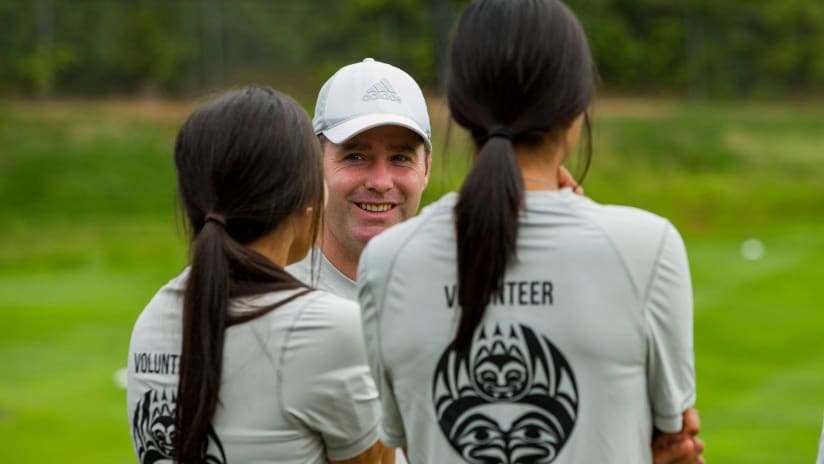Major League Soccer announced on Tuesday this year’s MLS WORKS Community MVPs, and among the honourees is Jesse Symons, who volunteers as a coach for Hope and Health while managing the UBC Thunderbirds women’s soccer team.
Symons is being recognized for his impactful contributions to the community throughout the COVID-19 pandemic, having been instrumental in delivering programs to continue developing life and leadership skills among Indigenous youth through Hope and Health.
- Naut’sa Mawt: Hope and Health, ‘Caps working together with one heart, one mind during pandemic
We caught up with the former ‘Caps youth and Girls Elite REX coach last week to discuss what inspired him to make an impact, how he’s able to cultivate leaders with both the Indigenous youth and the Thunderbirds, as well as what else is in the pipeline for Hope and Health.
Video Cover Photo Credit: Bob Frid
First off, congratulations on being named Community MVP.
Jesse Simons: It's a great honor and really, I'm one of many parts of Hope and Health, and to put some light on what great programs are happening all over the province is quite special.
What inspires you to do a lot of work for Indigenous youth?
JS: Personally, I live quite close to the Tsleil-Waututh Nation in North Vancouver. There's a lot of great people there that I've been connected to over my life and Hope and Health is something that really inspires me. And as a coach for UBC and the campus being on Musqueam territory, it's a no-brainer to work with a great culture and to give back to a lot of Indigenous youth, where they may not get the same support all the time or may not play in the mainstream way of sport is something that I look at very closely.
The pandemic has forced everyone to adjust, and it has affected Hope and Health as well. How did you find creative solutions to continue delivering programs for Indigenous youth?
JS: When the pandemic started, it shut everything down and we didn't want to stop with the Hope and Health at-Home (H3O) program. So I started to consider different ideas and thought that we could go online and look at virtual opportunities. There's a lot of soccer clubs, including the Whitecaps, that were doing a lot of online teaching and I felt that there was another level we could get to with engaging and using the curriculum that we have for Hope and Health. Starting in the spring, we were able to get a lot of Indigenous communities bought in to working with us.
How do these programs help the youth in these communities?
JS: We engage them in not only soccer but physical literacy skills and holistic skills with self-confidence and respect. Also, we put a cultural aspect on the beginning of each session as well.
You also got your student-athletes involved. How did that come about?
JS: Our program at UBC is a lot about women leaders and putting our players in the community and this ticks every single box with that. They're leading sessions, they're engaging youth, they're giving back. It's such a positive situation and a win-win for everyone and I think some of the time, our players get more out of it than even the children because they're just so engaged in their learning how to lead.
What else can we look forward to at Hope and Health?
JS: We actually just started a new initiative with a school in Penticton. We're running their PE classes for their teachers so we're actually teaching PE classes at UBC to kids in Penticton on Zoom live to junior kindergarten all the way up to grade nine.
To learn more about Hope and Health, visit hopeandhealth.org.



